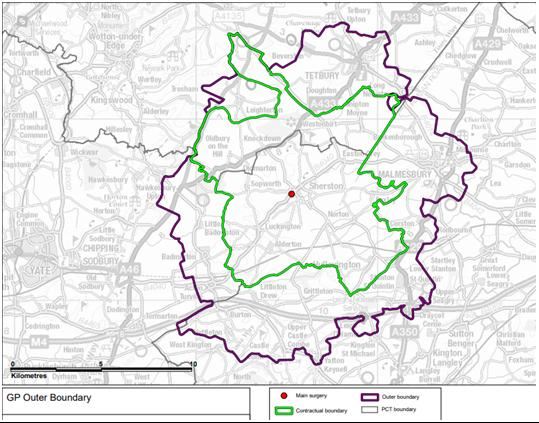New Patients
Register as New Patient
The Tolsey Surgery is pleased to welcome new patients. To register with us please click on the link below to start the registration process
https://gp-registration.nhs.uk/J83618/gpregistration/landing
Please check by inputting your postocde into the practice boundary tab below that you are in our practice boundary before completing your form. If you do not live within our boundaries you will not be accepted onto the practice's list.

Practice Boundary
Named GP for Every Patient Under 75 Years Old
Since June 2015 all patients (including children) have been assigned a named, accountable GP. This will normally be your registered GP. The named GP will take lead responsibility for the coordination of all appropriate services required and ensure they are delivered to each of their patients where required.
You will still be able to see any GP at the practice and not only your named GP. You can contact the practice if you wish to know who your named GP is.
If you have a preference for your named GP please let us know and we will make every effort to accommodate this request.
Change of Personal Details
Please notify the Practice as soon as possible if you change your address and/or contact details. It is important that we hold up to date information in case we need to contact you in an emergency.
Unfortunately, sometimes people move out of our practice area, in that case we would be happy to advise you about your nearest local surgery.
Temporary Patient Registrations
If you are ill while away from home or if you are not registered with a doctor but need to see one you can receive emergency treatment from the local GP practice for 14 days. After 14 days you will need to register as a temporary or permanent patient.
You can be registered as a temporary patient for up to three months. This will allow you to be on the local practice list and still remain a patient of your permanent GP. After three months you will have to re-register as a temporary patient or permanently register with that practice.
To register as a temporary patient simply contact the local practice you wish to use. Practices do not have to accept you as a temporary patient although they do have an obligation to offer emergency treatment. You cannot register as a temporary patient at a practice in the town or area where you are already registered.
Non-English Speakers
These fact sheets have been written to explain the role of UK health services, the National Health Service (NHS), to newly-arrived individuals seeking asylum. They cover issues such as the role of GPs, their function as gatekeepers to the health services, how to register and how to access emergency services.
Special care has been taken to ensure that information is given in clear language, and the content and style has been tested with user groups.
Open the leaflets in one of the following languages:
Disabled Patient Facilities
The premises consists of two floors. The entrance door is wide enough for wheelchairs and the downstairs cloakroom is designed for disabled patients. There is a downstairs consulting room for disabled patients and a chairlift for those patients who have a difficulty with stairs. Ask for assistance when needed and a member of staff will be pleased to help.
Page created: 07 April 2020
